The National Conference to Advance POGIL Practice
About NCAPP
The idea for this event grew from interest within our thriving community of experienced POGIL educators who have been applying their knowledge and skills in new and innovative ways over the past several years. The goal of the inaugural NCAPP in 2017 was to create a conference where POGIL practitioners could come together to share new ideas, get targeted feedback, engage in in-depth discussions, interact with a diverse community of teachers, and gain a deeper mastery of the POGIL approach.
By all measures, 2017 NCAPP was a huge success for both attendees and The Project, and the 2019 NCAPP (Building Bridges/Breaking Barriers) built on that success. We are excited for 2021, when we present a virtual NCAPP with the theme of "Transforming Education & Educators."
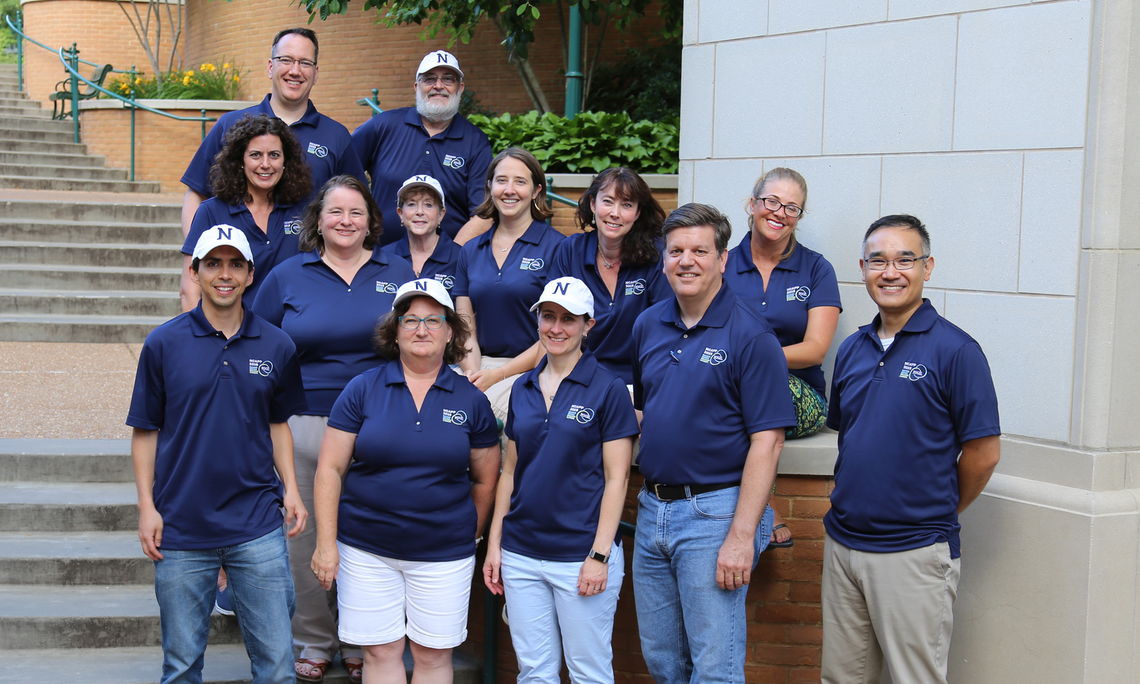
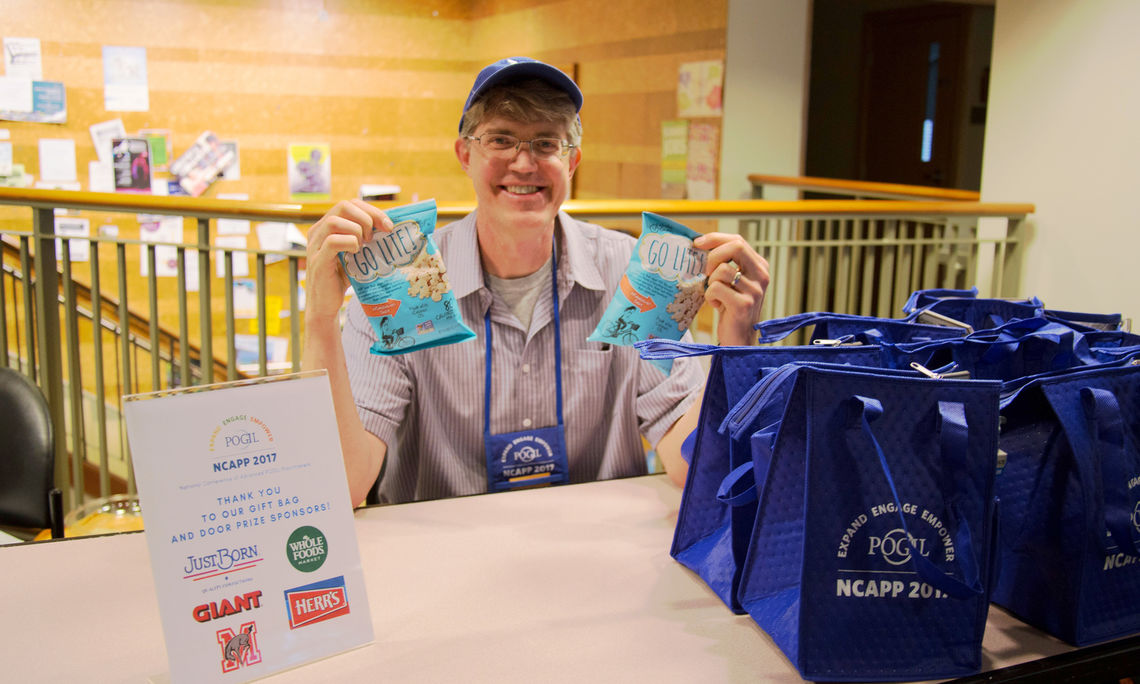
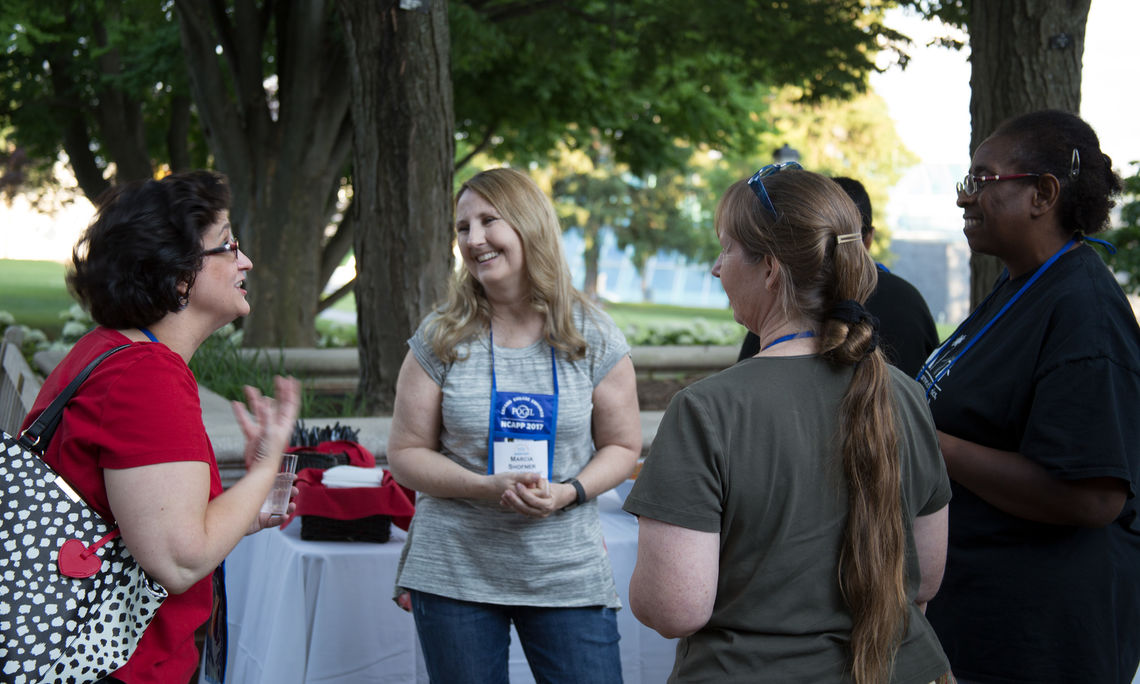
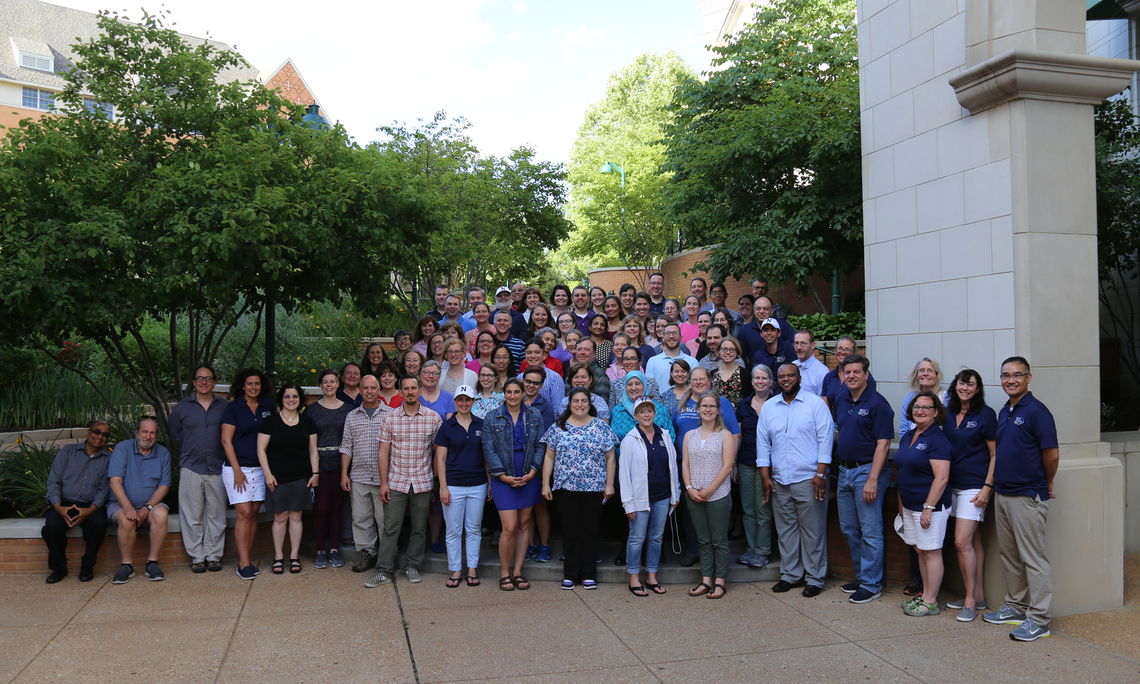
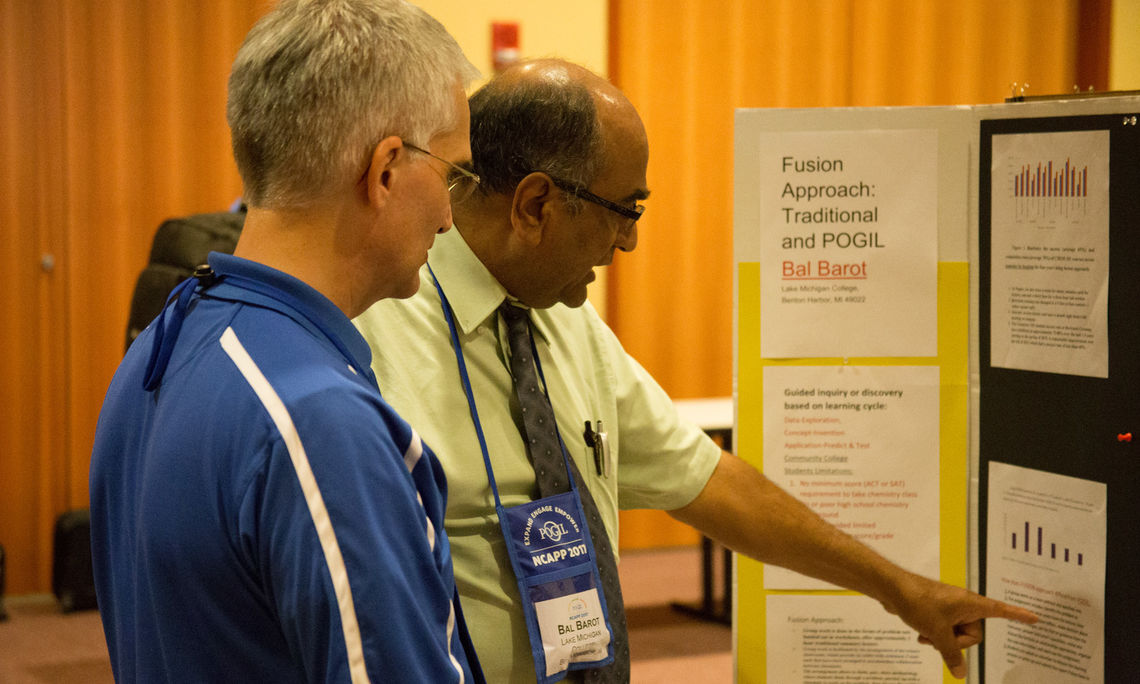
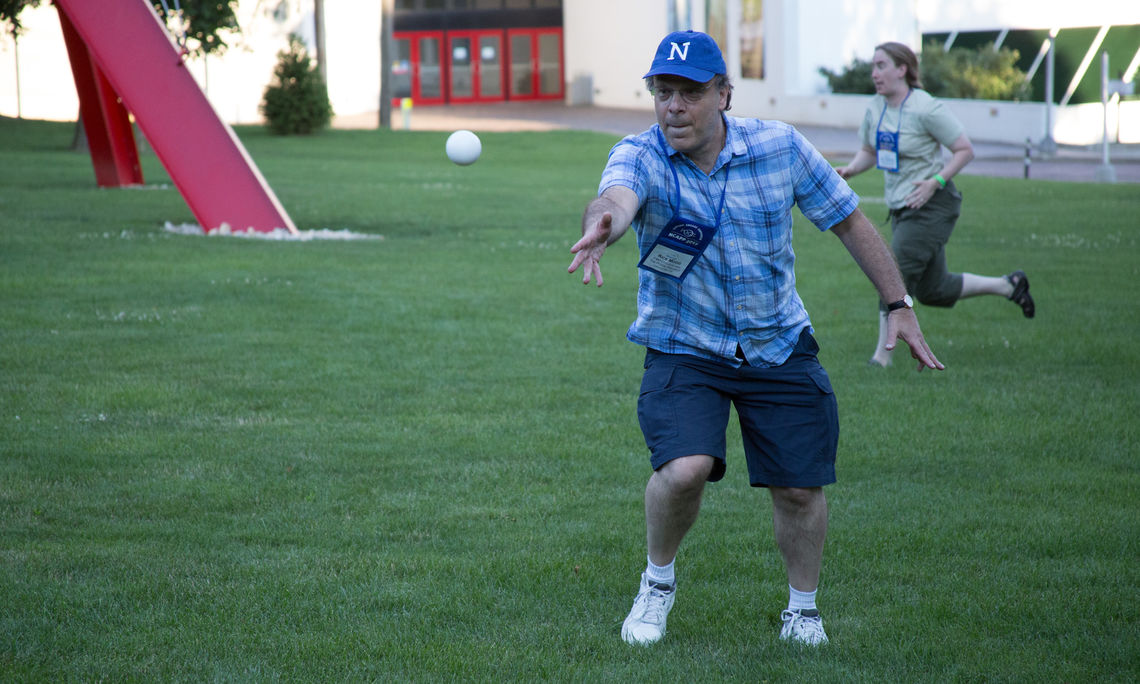
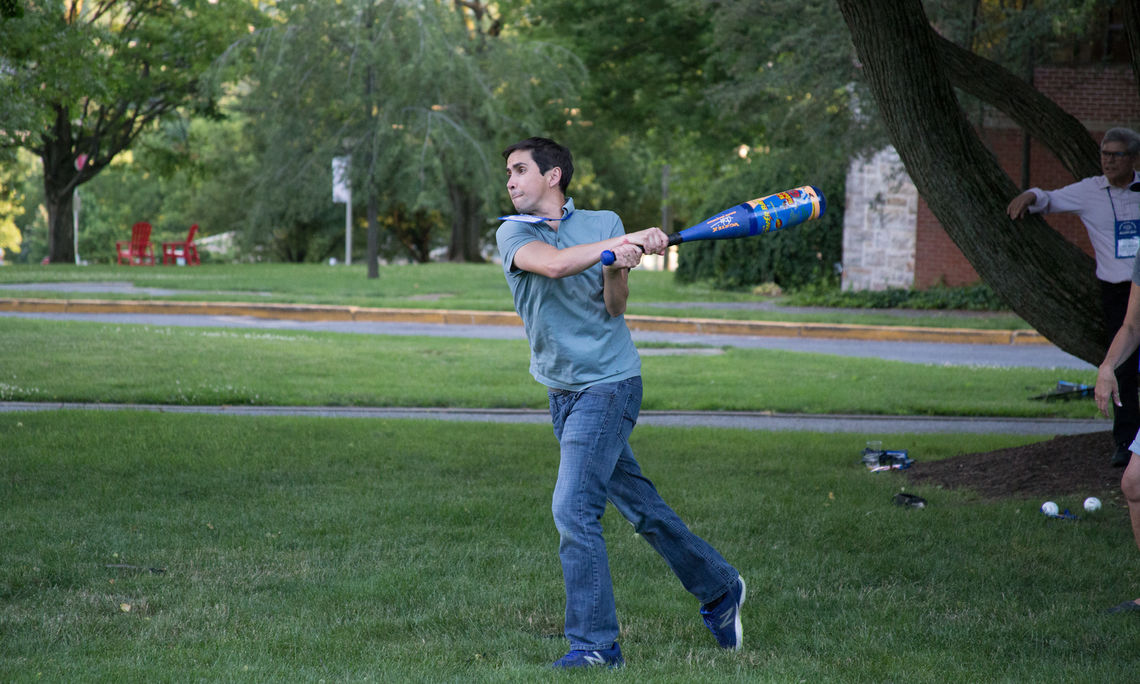
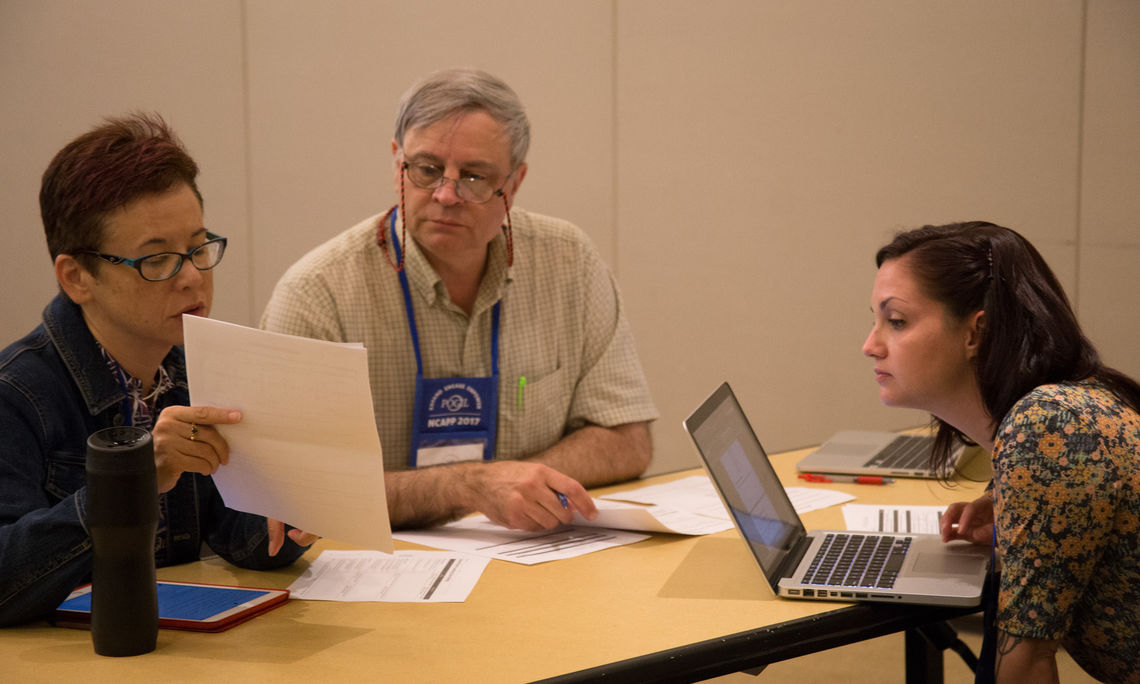
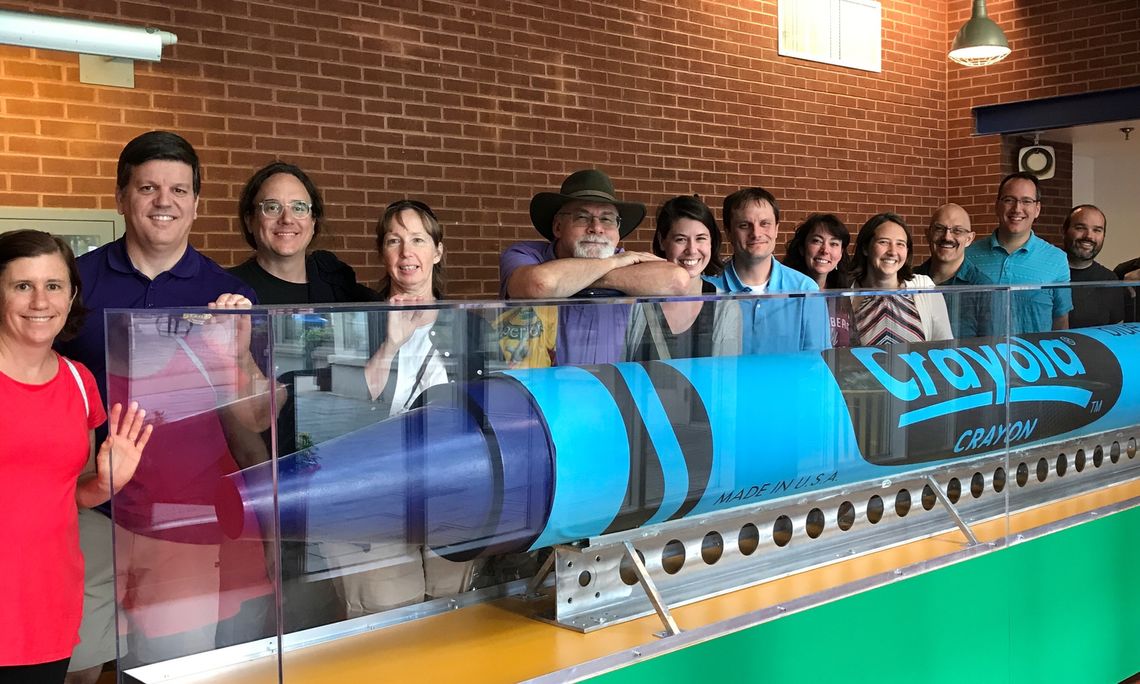
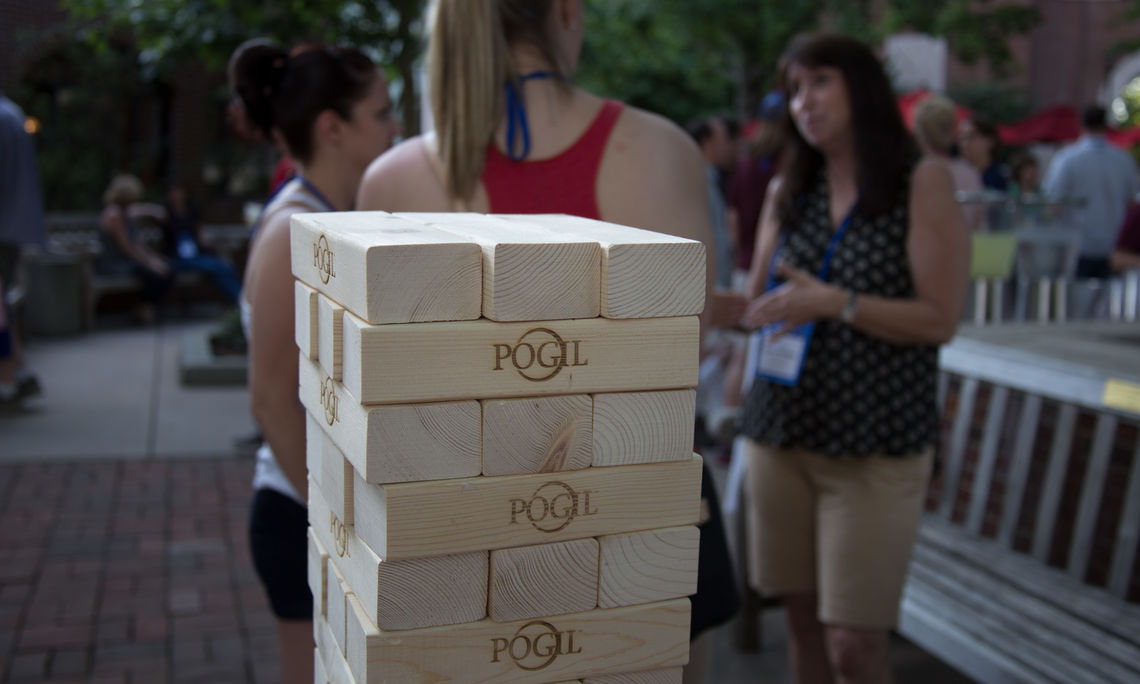
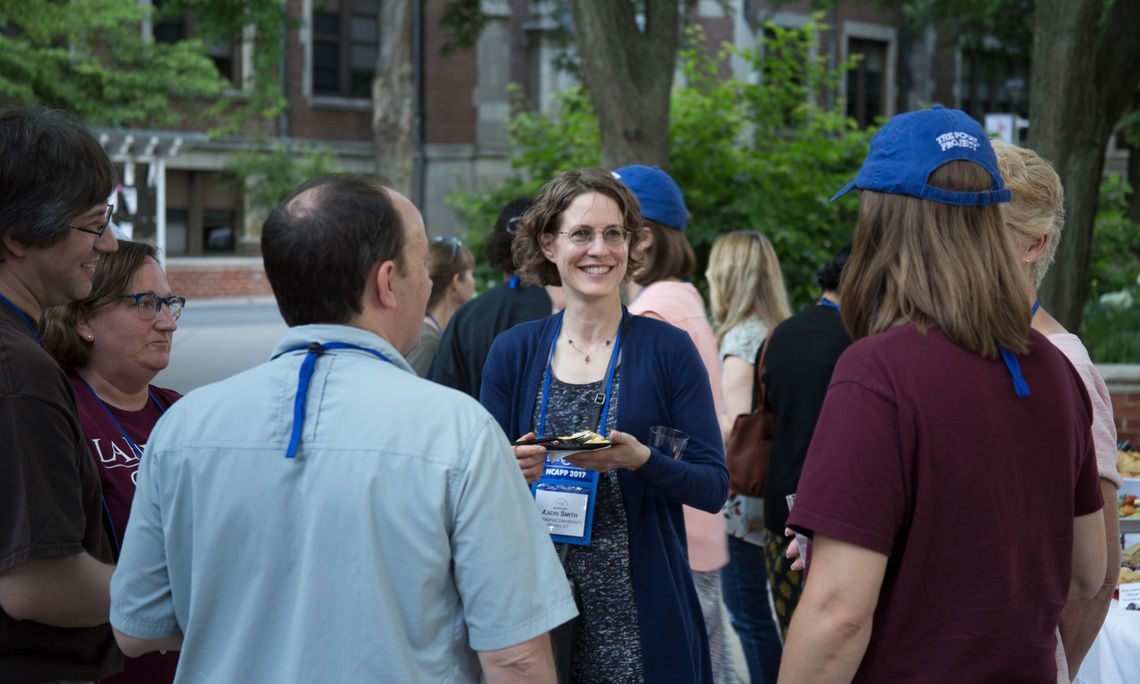
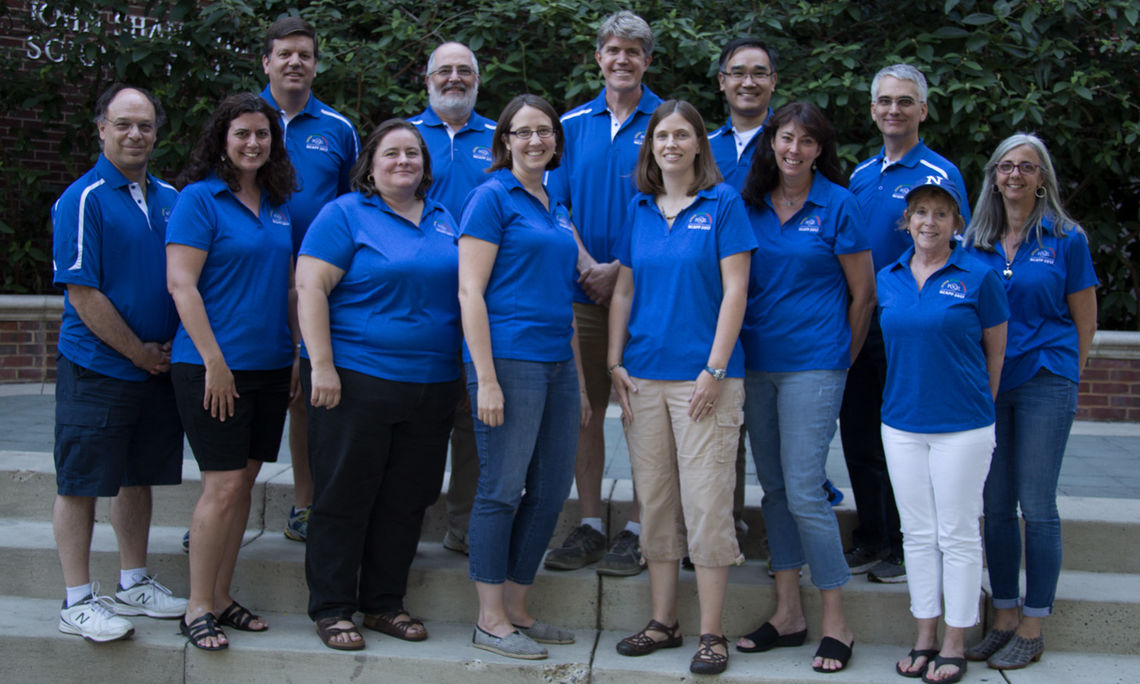
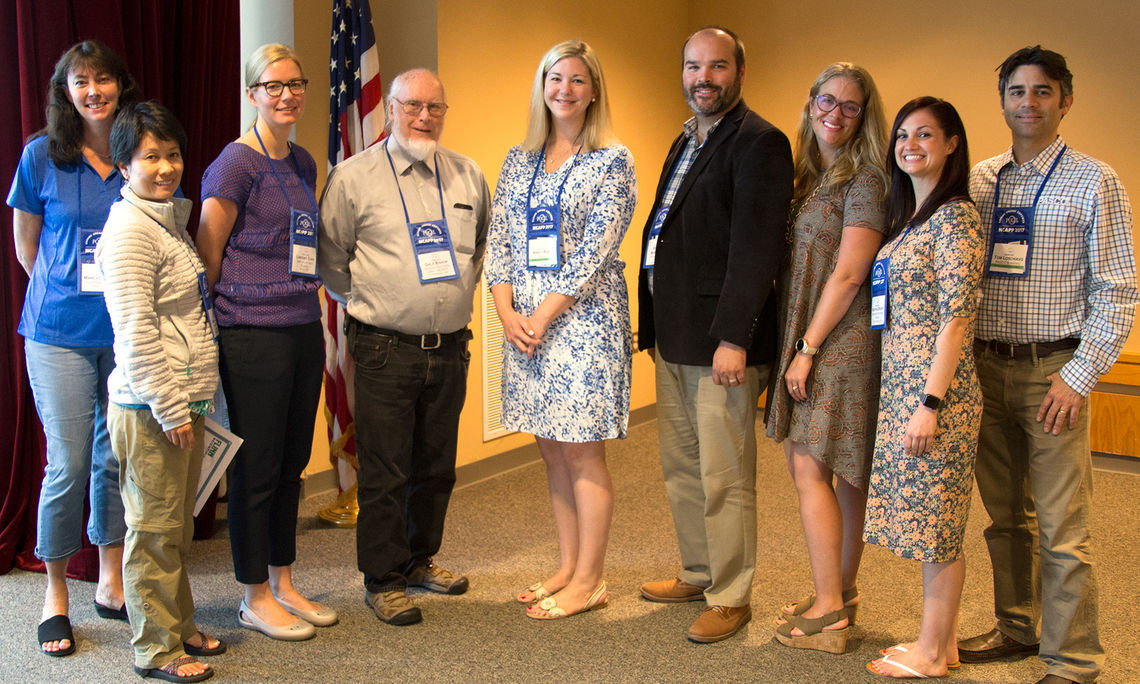
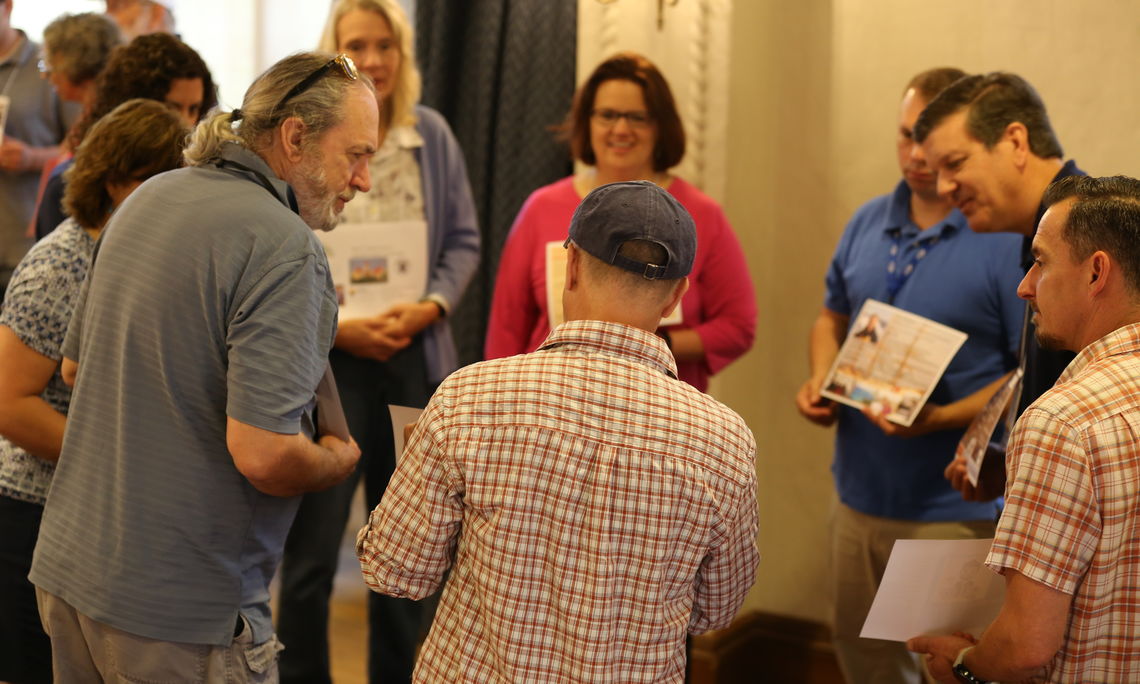
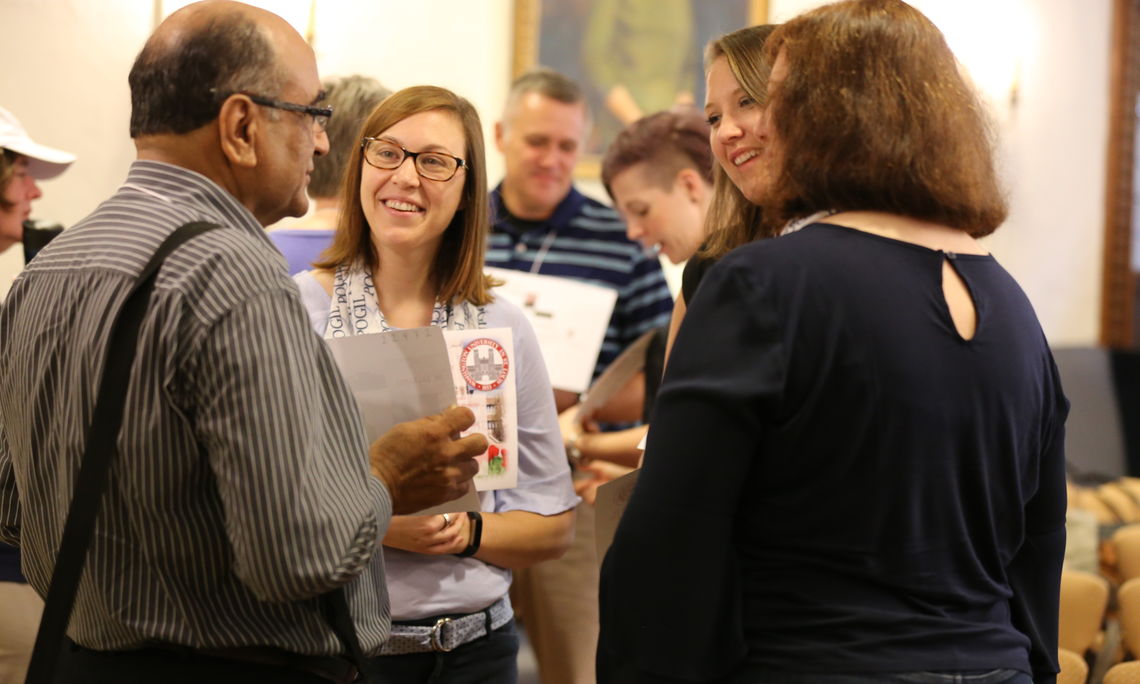
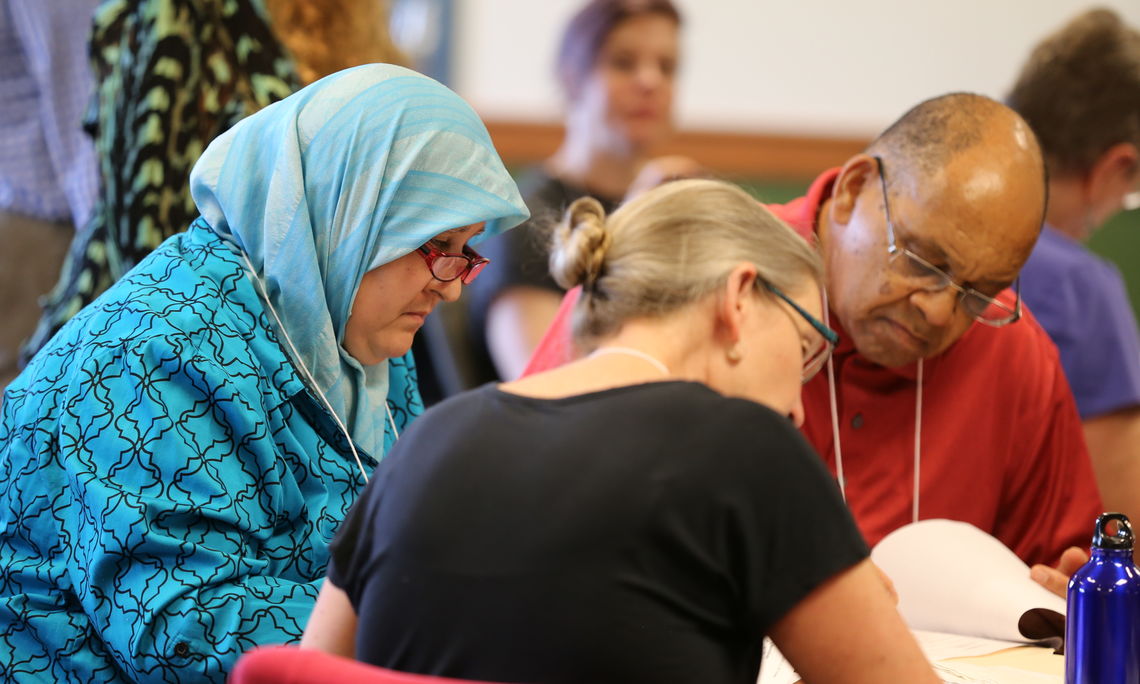
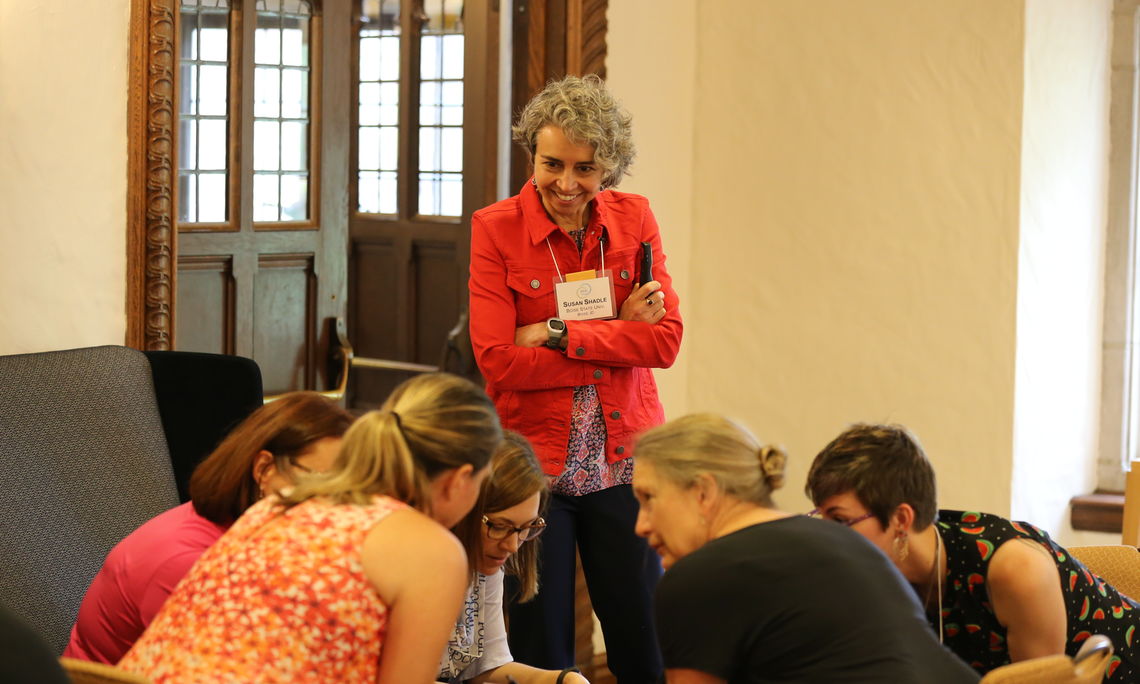
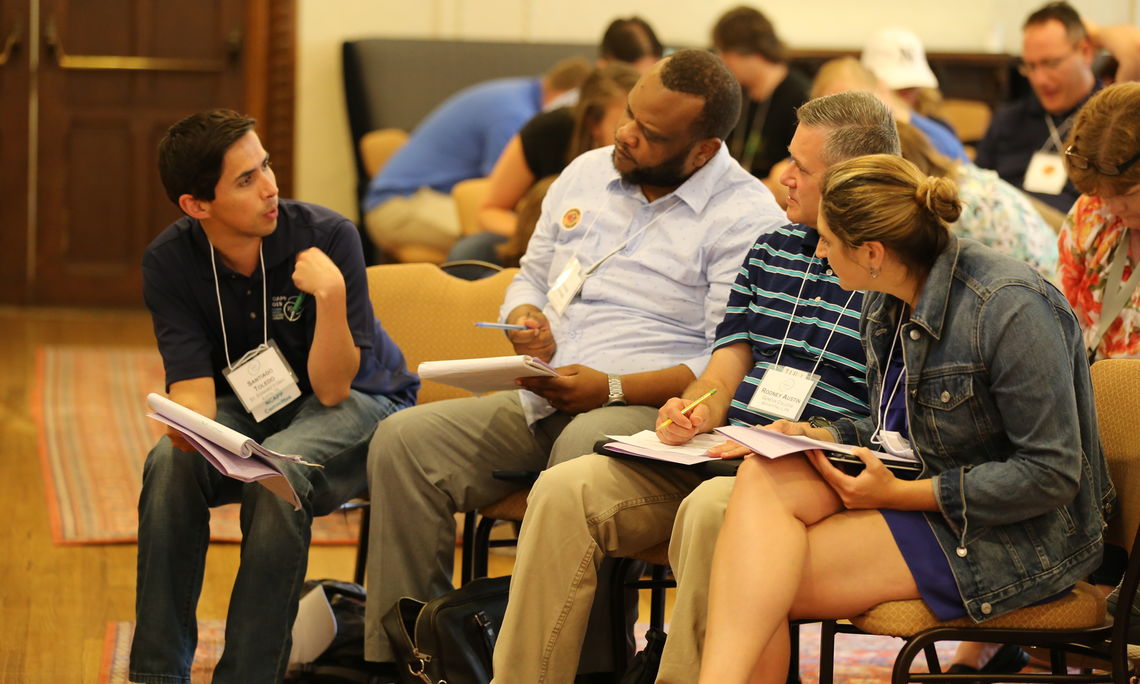
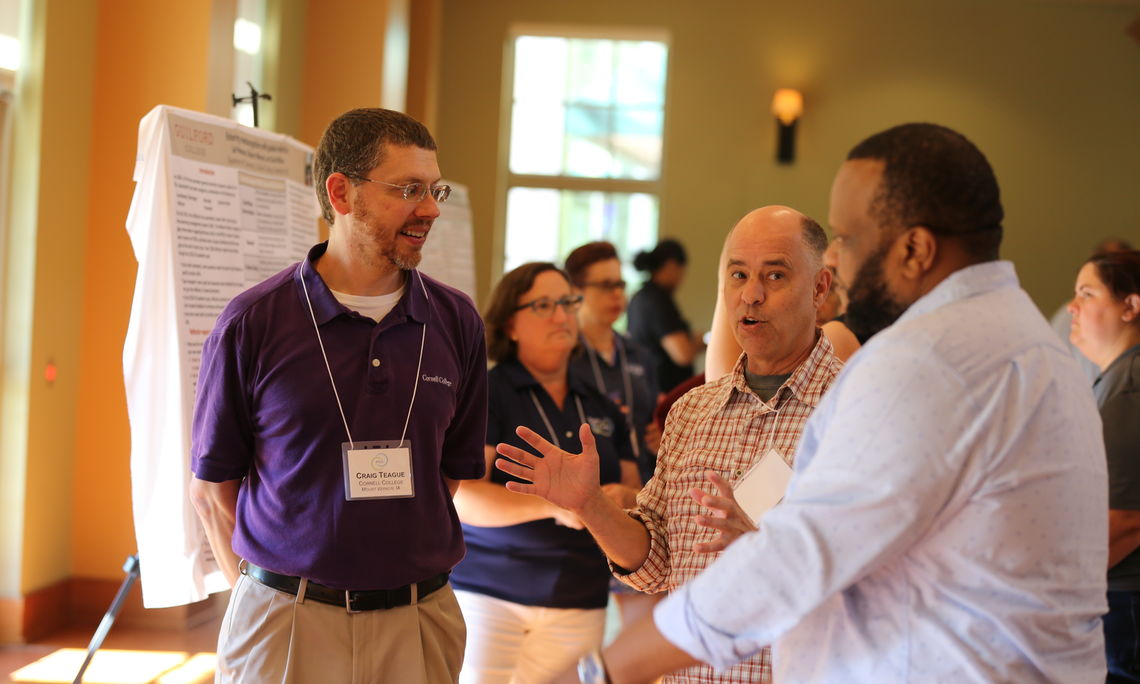
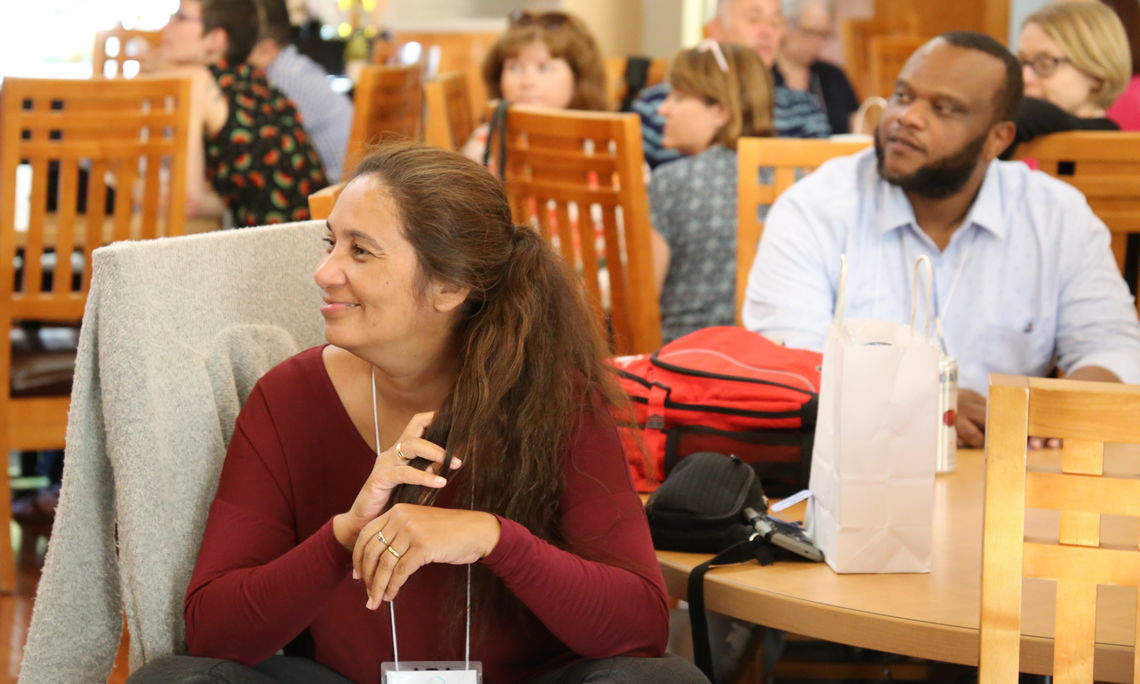
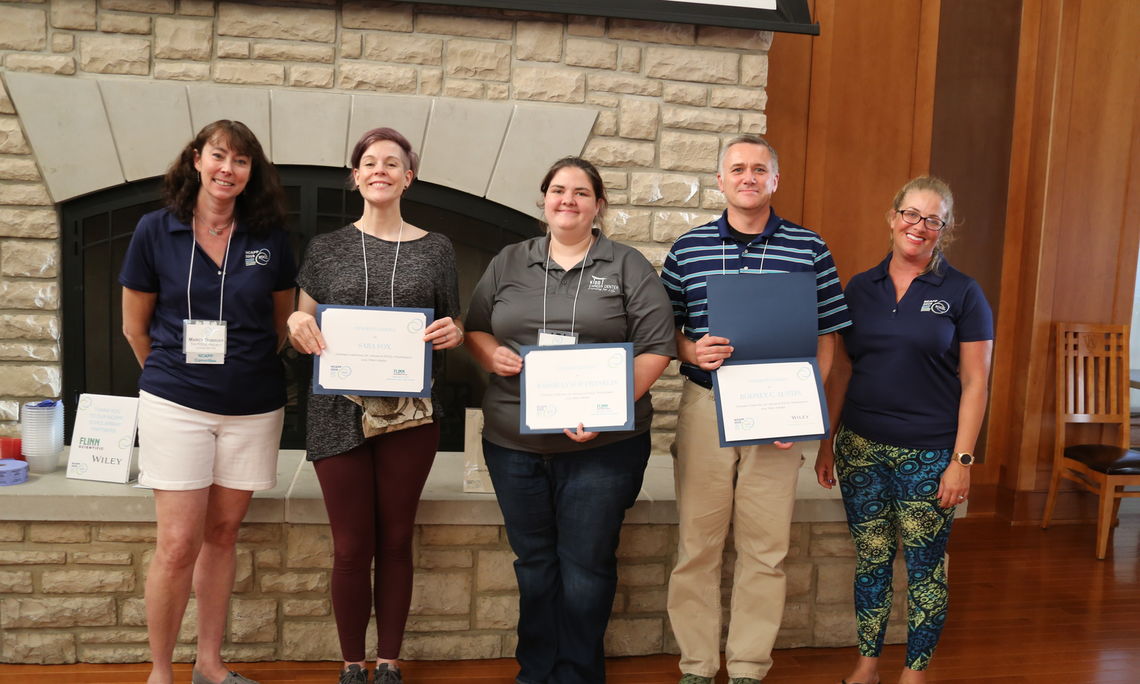
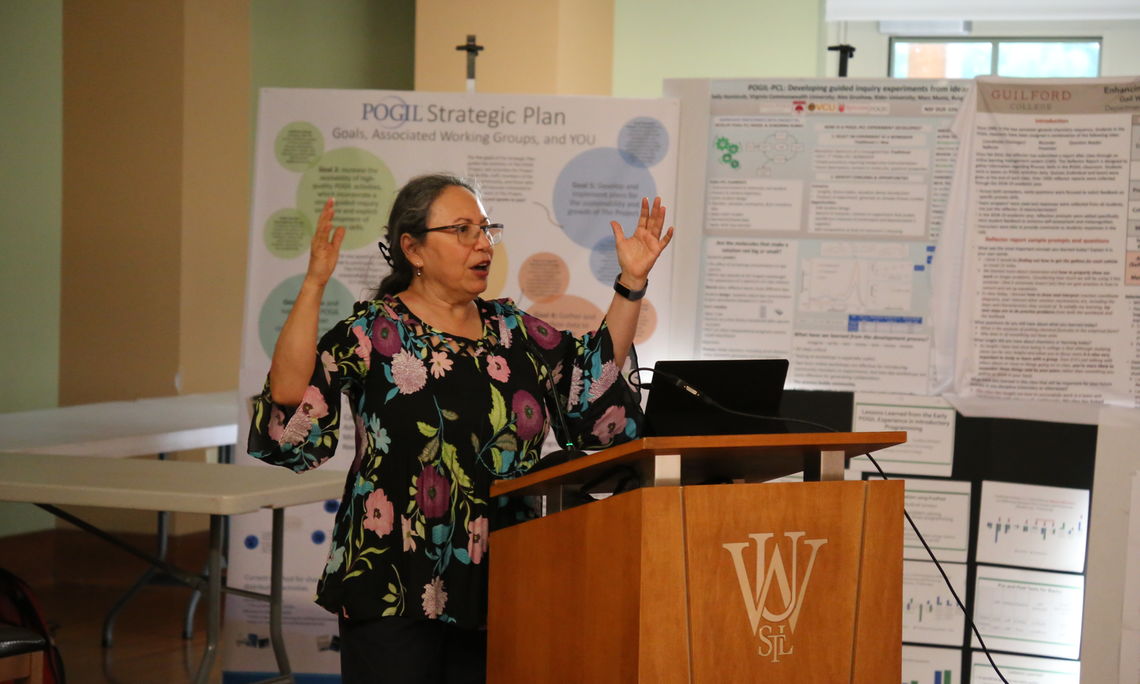
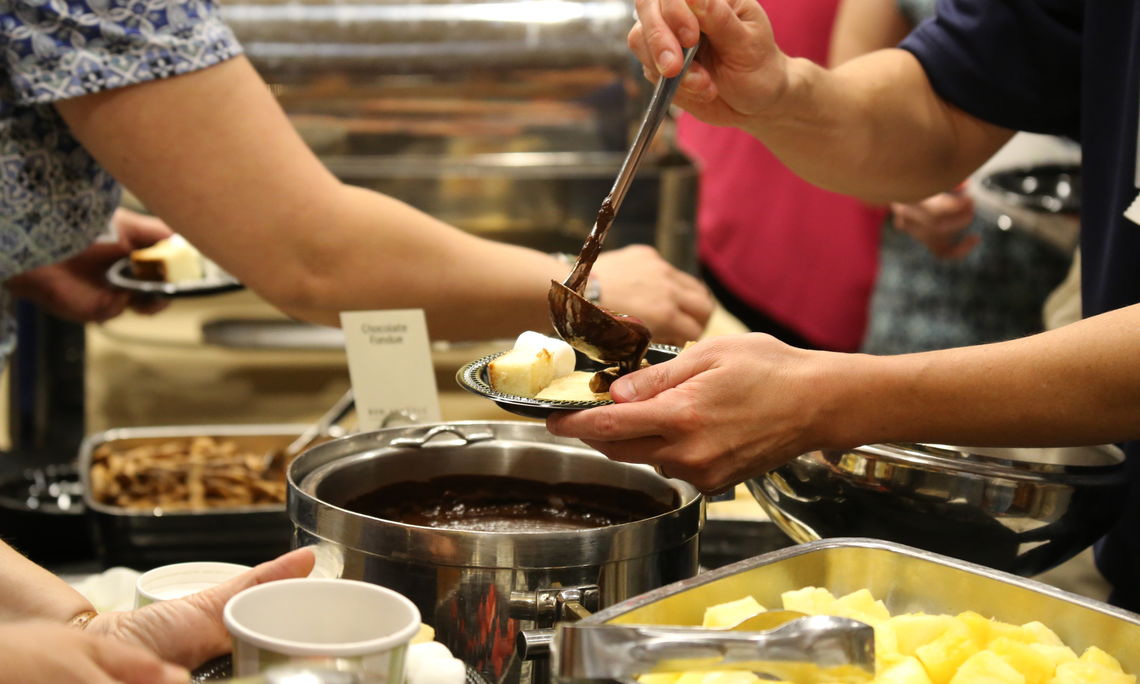
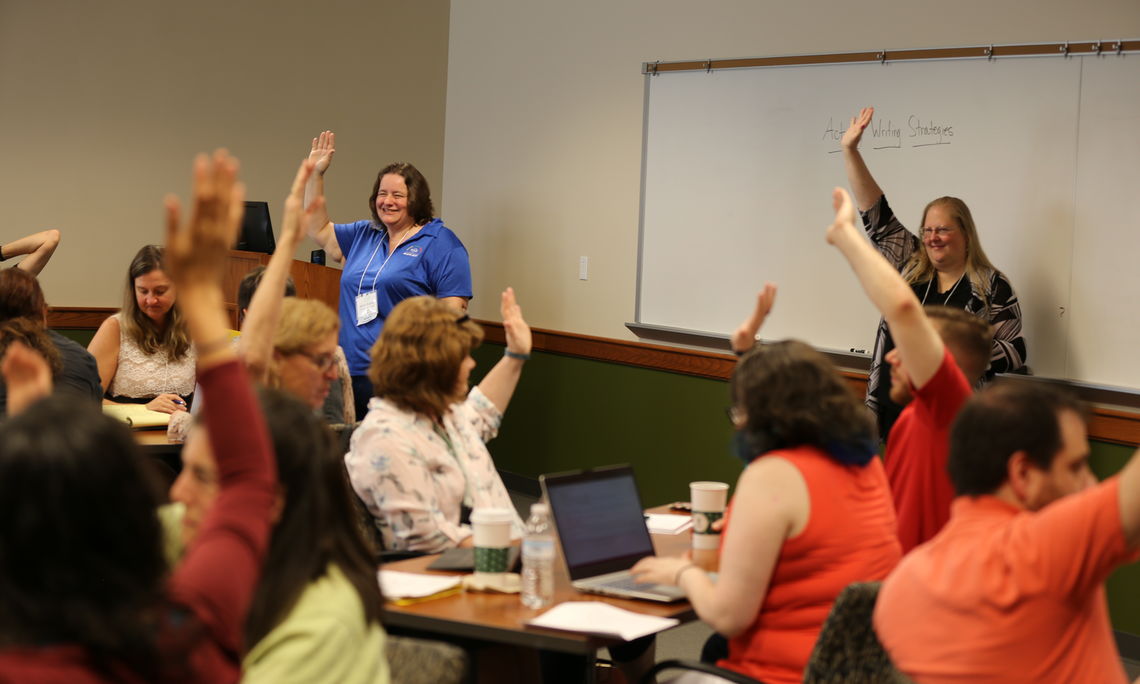
NCAPP 2021: June 28 - 30
We hope you'll join us for the 2021 POGIL NCAPP and inspire us with your ideas, expertise, and experience. Together, we will improve, enhance, and transform education for every student, everywhere. (Please note that the brochure below and the video to the right were created pre-COVID. Our plans to hold NCAPP at the University of Utah have been replaced with plans to hold the event in a virtual environment in 2021. We will return to Utah in 2023.)
NCAPP 2021 Promo

Learn more about our 2021 Virtual NCAPP
Click to listen to our new Podcast: Preview of The POGIL Project's 2021 NCAPP Virtual Meeting to learn about the origins of NCAPP and what to expect this year.
Or, check out the 2021 NCAPP Brochure below to find everything you need to know about our upcoming event.
NCAPP Application
Application Information
Attendance at the National Conference to Advance POGIL Practice is by application. All conference participants actively contribute to the planned program. Therefore, in addition to basic information about you and your POGIL experience, the application provides opportunities for you to summarize any work you would like to present in any of the various types of sessions. Applicants invited to attend the conference are also notified of accepted presentations.
Who Should Apply?
We encourage applications from POGIL practitioners who have previously completed 3-day POGIL workshops or who have substantial experience implementing POGIL in their classrooms or laboratories. NCAPP is not an introduction to POGIL pedagogy, so we recommend novices start by attending a 3-day regional workshop before applying to attend NCAPP. All conference participants should expect to contribute or actively participante in the program.
APPLY HERE
2020-21 Application Timeline
- October ~ The call for applications is sent out to our database of POGIL users and is also available on our website..
- November 30th ~ Priority consideration deadline
- January 15th ~ Applicants who applied by November 30th are notified of an acceptance decision.
- Applications are reviewed on a rolling basis from November 30th through March 1st, or until the conference has reached maximum attendance.
Conference Details
The next NCAPP will take place June 28-30, 2021 online. Registration is $247. Limited scholarships are available for NCAPP attendance. (Please note that the brochure below was created pre-COVID. Our plans to hold NCAPP at the University of Utah have been replaced with plans to hold the event in a virtual environment in 2021. We will return to Utah in 2023.)
Conference Schedule
The conference schedule is largely dependent on the accepted applicants and the types of sessions they are interested in participating in and/or presenting. Therefore, the conference schedule for 2019 NCAPP was a work in progress through the spring of 2019. If you'd like a feel for the overall types and balance of sessions, check out our sample agenda as an example.
Thank You
A special thank you to our returning NCAPP Scholarship Partner Flinn Scientific. As a Scholarship Partner, Flinn is making it possible for several teachers to attend NCAPP this summer. We are grateful to have our key publishing partner as a sponsor and supporter of NCAPP, and as an integral part of the POGIL community. A special POGIL thank you to Flinn!
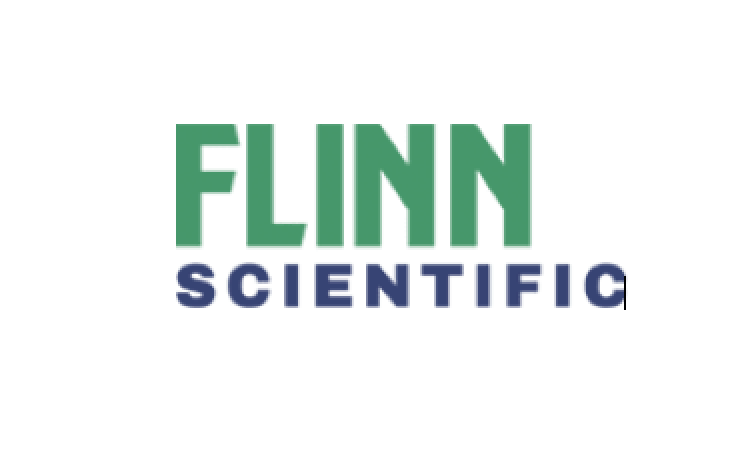
2021 Plenary Speakers
The plenary speakers for 2021 NCAPP include Valerie Otero, Ph.D., University of Colorado Boulder; Mare Sullivan, Seattle Pacific University; and Kimerbly Tanner, Ph.D., San Francisco State University.
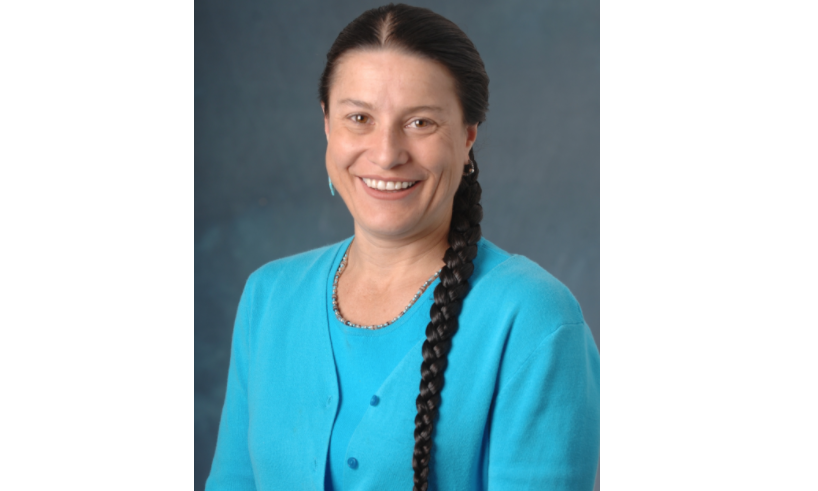
Valerie Otero, Ph.D. is a Professor of Science Education at the University of Colorado Boulder, specializing in Physics Education Research. She received her bachelor’s from the University of New Mexico and her M.S. and Ph.D. from the University of California, San Diego. She is co-founder and executive director of the Colorado Learning Assistant program, the International Learning Assistant Alliance, and the Physics through Evidence, Empowerment through Reasoning (PEER Physics) Suite. She has advised the National Academy of Sciences, the American Physical Society, the National Governor’s Association, and NASA on issues in undergraduate STEM education, high school teacher preparation, and pre-college science. Her innovative instructional models have spread throughout the world, reaching hundreds of universities throughout the U.S. and in 14 other countries. She is also known for her work on the history of physics education reform. A Chicana, first-generation college student, Otero grew up working after school at her parents’ grocery store and at the New Mexico State Fair, where she still works each September. She is committed to building and sustaining programs that reach diverse stakeholders in STEM education, with the goal of inspiring and supporting students from minoritized groups to find self-love, belonging, and advocacy through science.
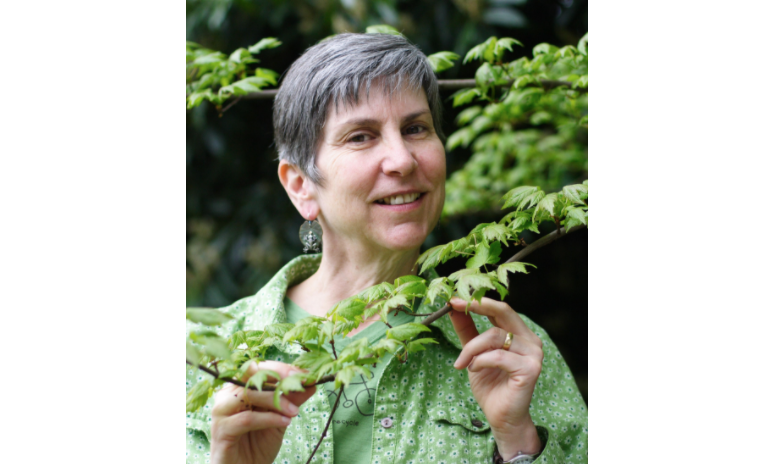
Mare Sullivan has a B.S. in Biological Sciences (Stanford University) and an M.S.P.H. in Environmental Health (University of Washington). She moved from a first career as an industrial hygiene inspector and consultant to a second career spanning more than 30 years of teaching in varied settings from preschool through university. Attending her first POGIL workshop in 2005, she quickly immersed herself in the pedagogy and the community. She has used her POGIL skills to develop two high school courses: a chemistry course built on POGIL activities and inquiry labs and a Physical Science course built on learning cycle-based lab activities. She has facilitated and developed dozens of POGIL workshops over the past 15 years – one of which has become the annual POGIL Writers’ Retreat. She has also published four collections of NGSS-based POGIL activities for middle school and high school students. Mare currently gets her fix of teenagers by supervising secondary science teacher interns through Seattle Pacific University in Seattle WA. She constantly juggles the roles of teacher, mentor, wife, mom, grandma, neighbor, friend, and author.
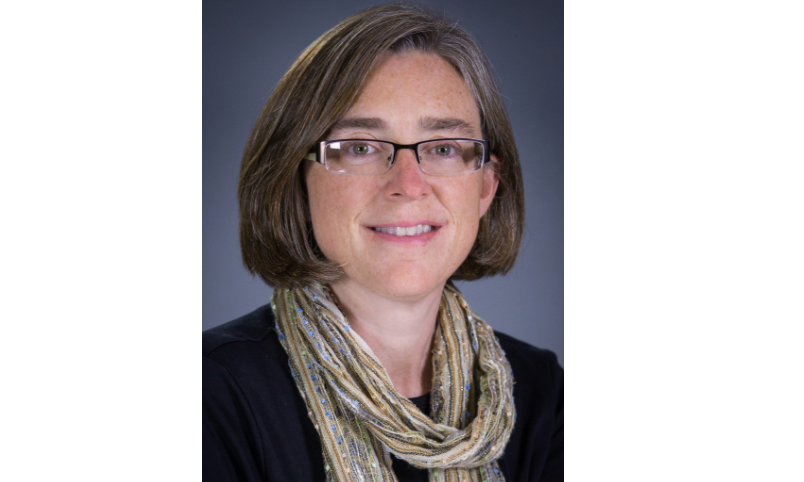
Kimberly Tanner, Ph.D., is a tenured Professor of Biology at San Francisco State University. Her laboratory, SEPAL: the Science Education Partnership and Assessment Laboratory, investigates what is challenging to learn in biology, how biologists choose to teach, and how to make equity, diversity, and inclusion central in science education efforts. As a Science Faculty with an Education Specialty (SFES), she is engaged in discipline-based education research, directs multiple K-16+ biology education reform efforts, and is deeply engaged in faculty professional development. Trained as a neurobiologist (B.A. in biochemistry from Rice University, Ph.D. in neuroscience from UCSF) with postdoctoral studies in science education, Dr Tanner is a proud first-generation college-going student. She has been nationally and internationally recognized for her research and teaching in biology.
Session Descriptions
Session descriptions for 2021 POGIL NCAPP below.
Author Coaching: Making Improvements
Facilitated small group reviewer training and feedback for one of your existing activities using the POGIL activity rubrics. Includes one pre-NCAPP videoconference (reviewing writing POGIL activities) and three sessions at NCAPP. Limited slots available.
Birds of a Feather Gatherings
Also known as idea exchanges or networking tables, Birds of a Feather Gatherings will be organized as part of the conference program. They are relatively small and informal discussion-based gatherings, aimed at building networks and exploring ideas. This is the only session type for which there is NO formal presentation. Instead, the facilitators ensure that there is time for introductions among those in attendance and come with questions or ideas to spark discussion around a particular topic.
What does a Birds of a Feather Session look like? At the beginning of the exchange, the facilitator will welcome attendees and ask each to introduce her or himself and to note their interest in the topic. The facilitator will likely pose a thought-provoking question or challenge, and from there, those in attendance are encouraged to share and discuss, to network, and to learn one from another. It is a 'meeting of the minds' and the time together will be whatever you make of it.
Facilitation Fishbowls
Facilitation fishbowls are 45-minute classroom simulations in which the presenter will facilitate an activity of their choice for 20 minutes. Conference participants will be involved in the fishbowls, either as an activity facilitator, student, or observer. The presenter will be selected through the application process. These sessions are designed to assist both presenter and participants in improving facilitation skills. This experience will provide participants with a number of different perspectives on which to reflect, including how different strategies impact the effectiveness of POGIL activities.
What does a fishbowl session look like? At least one month before the conference, fishbowl presenters will complete the Fishbowl Activity Form and submit their activity. This includes information about the intended student population, place in the curriculum, and prerequisite knowledge. This form also includes: one clearly stated content goal and one clearly stated process skill goal that can be achieved by “students” within 20 minutes. The process skill area (such as teamwork, management, assessment, communication, etc.) should be indicated in a parenthetical at the end of the goal. (Fishbowls are not intended to provide feedback on a classroom activity.) At the start of the session, a moderator will set up the fishbowl, separating the participants into fish (“students” who will work on the activity in teams) and observers. For the first half of the 45-minute session, you will conduct an activity as you would with regular students, with attendees acting as students and observers. Afterward, the moderator will facilitate a discussion about the strengths of your facilitation, missed opportunities, and any insights they gained from their perspective.
Informal Networking
This time is designed to provide participants with a chance to network and work on collaborative projects in a variety of settings. In the virtual format, we will set up specific times and create breakout rooms based on participant requests. These sessions provide an opportunity to expand your network and develop new collaborations and projects in an informal setting. If you have an idea for a breakout session during informal networking, do a bit of research and communicate with the POGIL National Office before the conference so you can take the lead in heading up the session.
Poster
This formal graphic presentation of your topic, this year presented in a virtual Powerpoint format, offers an excellent opportunity for gathering detailed feedback on your work and reporting on evaluation results. A poster abstract should detail the focus of the presentation and the way(s) in which it contributes to the body of knowledge.
What does a poster session look like? All posters are presented during one of the poster sessions throughout the conference. Posters will be available on the NCAPP website during the event and a formal time for participants to discuss posters either one-on-one or in small groups will be arranged via Zoom. Some poster presenters also present supplemental materials with their posters and provide contact information for further follow up.
Professional Development Workshops
As part of 90-minute sessions taking place during the conference, professional development workshops provide instructors from both high schools and colleges/universities with an opportunity to obtain professional development and to gain new insights into teaching and learning. Professional Development workshops will be presented by a trained facilitator who is expected to have significant experience facilitating workshops in the subject area. Workshops will be selected by The POGIL Project from recently developed advanced workshops.
What does a professional development workshop look like? Professional Development Workshops are 90 minutes in length. Participants work together in small groups on facilitated activities designed for interactive learning. Participants receive take-home materials and have an opportunity for interaction with the facilitator and their peers.
Roundtable
Roundtables are 45-minute discussions that typically include 5-15 minutes of presentation, followed by 30-40 minutes of discussion and feedback. Roundtable presenters should bring targeted questions to pose to others in the session. Roundtable presentations are among the most flexible format offered at the conference, and may look quite different from session to session. The one thing that they have in common is that each allows for extended discussion within a small group. Roundtables are excellent venues for giving and receiving targeted feedback, engaging in in-depth discussions, and meeting colleagues with similar interests. Topics may include, but should not be limited to group formation, classroom management, metacognition research, feedback on SoTL research projects, facilitation issues, and writing activities. The abstract should detail the focus of the presentation.
What does a roundtable session look like? The session begins with a 5- to 15-minute presentation. Each presenter will be supported by a moderator to include an extended discussion component with ample time for questions. Most roundtable presenters provide supplemental materials illustrating their work. Roundtables are excellent venues for providing demonstrations of techniques, getting targeted feedback, engaging in in-depth discussions, and meeting colleagues with similar interests. While your attendees may be eager with questions, it is useful to have one or two prepared questions at the ready that you can use, if needed, to stimulate the discussion.